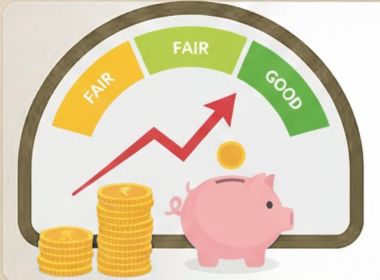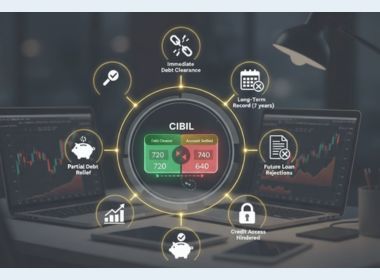Search Suggestions
- Gold Loan
- Money Transfer
- Mutual Funds

Pre EMI vs. Full EMI: Understanding the Key Differences
Purchasing a house is one of the major milestones in an individual’s life. While the idea of paying for your dream home may sound very appealing, it is not always possible due to a variety of factors. In such a scenario, availing a home loan is undoubtedly the best option to finance your purchase. This allows you to pay for a house without putting an unnecessary financial burden. You can obtain a loan as per your requirement and pay it back over a period of time.
Table of Content
- What is Pre-EMI in a housing loan?
- What is Full-EMI in a housing loan?
- Pre-EMI vs Full EMI: A Detailed Comparison
When it comes to repayment of a home loan, pre-EMI and full-EMI are two major options you have. Both these repayment options can be opted for in different scenarios and have their own set of advantages. To ensure that everything works smoothly, it is important to have a clear understanding of these two types of EMI things and then make a decision according to your needs.
Here is the definition of pre-EMI and full-EMI, the benefits they offer and how they are different from each other.
What is Pre-EMI in a housing loan?
A pre-EMI means a monthly payment that is being made against your home loan and only includes the interest component. With this type of EMI, you don’t pay any part of the principal amount of your loan. This interest component is calculated on the amount disbursed to date and not on the full loan amount. As a result, the amount you have to pay every month is also significantly lower than the actual EMI. Generally, an individual can choose to pay a pre-EMI only when the property you’ve obtained a loan for is under construction. Once the construction is completed, you cannot avail the option of pre-EMI.
Suggested Read: EMI Understanding the Term
What is Full-EMI in a housing loan?
A full EMI refers to the regular monthly payment that you need to make against a housing loan. This type of loan EMI comprises both interest and principal components. Usually, these EMIs start when the property construction is completed and the entire loan amount gets disbursed. As compared to pre-EMI, the amount of full-EMI or regular EMI is significantly higher.
Pre-EMI vs Full EMI: A Detailed Comparison
Here is a detailed comparison between pre-EMI and full-EMI, depending on various factors:
EMI amount
If you opt for a pre-EMI for your home loan, the monthly payable amount is a lot lower for the first few months, as this type of EMI only includes the interest component. The EMI amount will increase only when the entire loan amount gets disbursed and then the regular EMI starts. On the other hand, if you choose to pay full EMI, you have to pay a higher amount from the beginning, as this EMI includes both interest and principal components.
Total Payable Interest
In pre-EMI, you don’t make any payment towards the principal amount during the initial phase. This has a significant impact on the total interest that is applicable to your loan. With a full EMI, you start repaying the principal amount from the first instalment. This automatically reduces the total payable interest and results in a lesser financial burden.
Cash Flow
Opting for a pre-EMI can prove to be very beneficial if you’re experiencing a temporary cash crunch. This type of EMI is known to offer better short-term cash flow because of the lower EMI in the initial period. Full EMIs, on the other hand, have a higher instalment amount, which can put some pressure on your cash flow.
Total Property Cost
Since the payable interest of your home loan gets higher with pre-EMI, the total purchase cost of your property also increases. When you choose a full EMI, you pay a smaller amount as interest on your housing loan. This results in a lower purchase cost of the property and allows you to yield higher profits while reselling the house.
Tax Benefits
While paying pre-EMI for a home loan, you can claim tax benefits only on the interest component. But you will not get any tax benefits on the principal amount, as you are not making any payment against it. But with full EMIs, you’re eligible to claim tax benefits on both the interest and the principal components. This results in a higher tax saving.
Suggested Read: Know Your Income Tax Benefits On Home Loan
Pre-EMI and full EMI are two popular repayment methods for paying back your home loan. Making a choice between these two options entirely depends on your financial situation, cash-flow needs, and long-term objectives. It is always recommended to pick one that aligns well with your financial goals and liabilities. At Muthoot Finance, we offer quick and hassle-free housing finance at highly competitive interest rates. Whether you’re planning to apply for a home loan, personal loan or any other type of finance, our team of finance experts will provide you with complete assistance. For more information, you can also visit your nearest Muthoot Finance branch.
- Instant Personal Loan
- EMI Calculator
- Document Required
- Track Personal Loan
- Interest Rate
- Procedure and Eligibility
CATEGORIES
OUR SERVICES
-

Credit Score
-

Gold Loan
-

Personal Loan
-

Cibil Score
-

Vehicle Loan
-

Small Business Loan
-

Money Transfer
-

Insurance
-

Mutual Funds
-

SME Loan
-

Corporate Loan
-

NCD
-

PAN Card
-

NPS
-

Custom Offers
-

Digital & Cashless
-

Milligram Rewards
-

Bank Mapping
-

Housing Finance
-

#Big Business Loan
-

#Gold Loan Mela
-

#Kholiye Khushiyon Ki Tijori
-

#Gold Loan At Home
-

#Sunherisoch
RECENT POSTS

Understanding KDM Gold and Why it’s Banned
Know More
Gold loan boom: 3,000 new branches to open in India in 12 months
Know More
Gold Loan Boom: Rs 14.5 lakh crore market spurs NBFCs to add 3,000 branches
Know More
How BNPL Affects Your Credit Score
Know More
Inside the Muthoot money machine: How a Kerala family turned gold loans into a billion-dollar empire
Know More
Billionaire Family Turns India’s Gold Obsession Into a Fortune
Know More
What is a Cheque and its Different Types in India?
Know More
Benefits of Paying Your EMIs on Time: Why Timely Payments Matter
Know More
A Complete Guide to Report Online Fraud
Know More
How does a Personal Loan Affect your Credit Score?
Know MoreFIN SHORTS

What Are Co-Pay and Deductibles in Insurance Policies?
Know More
Should You Take a Loan Against Your Mutual Fund or SIP?
Know More
Top 5 Best Mid-Cap Mutual Funds to Watch in 2026
Know More
Are Personal Loans Right for Retirees? Key Points to Consider
Know More
What Happens to a Personal Loan After the Borrower Dies?
Know More
Best Loan Choices for Credit Scores of 580 and Below
Know More
7 Reasons Why a Gold Loan Is the Best Option for Small Businesses
Know More
10 Reasons Why People in India Prefer Physical Gold
Know More
Real Estate vs Gold: Which Is a Better Investment in India?
Know More
10 Common Mistakes That Make Investors Lose Money in Mutual Funds
Know More
10 Reasons Why Gold Has So Much Appeal in Uncertain Times
Know More
7 Ways Settling Debt Can Impact Your CIBIL Score
Know More- South +91 99469 01212
- North 1800 313 1212


